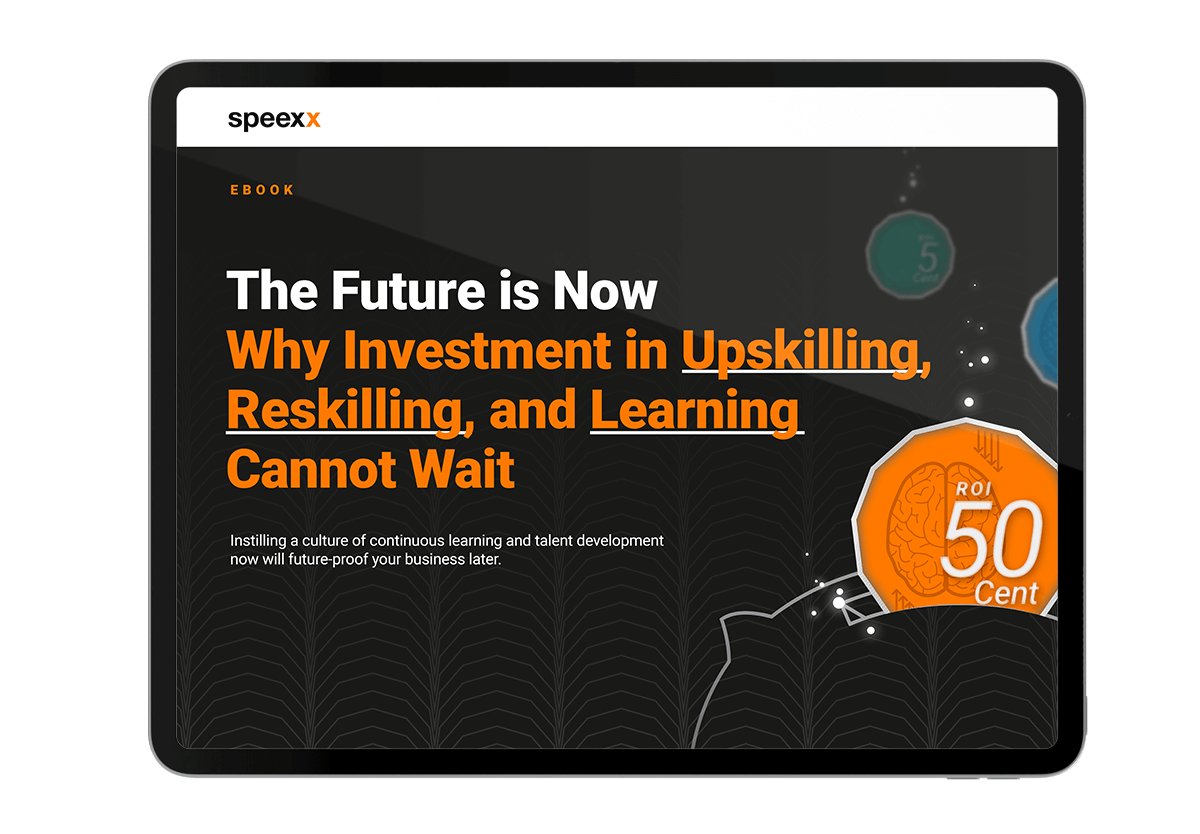As virtual exchanges continue to dominate most of our social interactions, many employees are finding themselves isolated and overrun with work. While there isn’t much most companies can influence regarding a global pandemic, one thing organizations can do is bring teams together to collaborate creatively in a virtual workshop.
This article will provide you with best practices for planning and running a digital workshop.
What is a digital workshop?
A digital workshop is an event hosted virtually wherein groups of participants join and discuss certain topics and interact with the speaker and the content – whether the content be video, text, or images.
Online workshops tend to delve into topics deeper than in in-person conferences or trainings. They provide space for looking at the topics more objectively, and allow for more interaction between the participants, host(s) and the content.
One obvious benefit of a digital workshop is that any member of your team can actively participate and create ideas during the event regardless of where he or she is geographically located. This also means that the host doesn’t need to worry about the stress of setting up a presentation, or if each participant will have the same ability to see or access the material. In short, the space and time limitations of an in-person event are removed.
Of course, this also means there are significantly fewer costs involved with transportation, logistics and other event preparation work, which is something that most hosts dread the most!
A digital workshop is also a great way for participants to learn more practical skills because they can try out new methods and ask questions in a fail-safe space. This way, they can apply their learnings to their daily jobs almost immediately.
The amount of content needed usually depends on the duration of the workshop itself. If it is longer than a few days, you might need to reconsider the amount of material you have. A workshop should introduce a new concept and spark curiosity and interest to encourage participants to investigate it further on their own, or to demonstrate the practice of the new methods. Thus, it makes more sense to get participants participating as soon as possible.

Find out now why Upskilling, Reskilling and Learning is so important for workers in the digital age.
Workshop vs. Hackathon?
Workshops (virtual or live) are something that most organizations are familiar with, but another popular term we hear frequently when it comes to engaging events is the term “hackathon.”
So, when should you hold a workshop, and when does the occasion call for a hackathon?
Generally speaking, a hackathon is a type of knowledge-sharing event that is used to brainstorm new ideas to achieve a specific goal. People often abandon their day-to-day job tasks for the length of the duration of the hackathon with the goal of coming up with new ideas, and creating and presenting prototypes of said new ideas. In some hackathons, the goal would be to actually build an end-to-end product. Many well-known products, like the Facebook Like button, were created in hackathons (and Mark Zuckerberg was certainly an early adopter and organizer of hackathons).
If a hackathon is centered around a specific problem, then the prototype or final product should provide a solution to that problem. Typically, in a hackathon, participants get to choose what they want to work on and develop. At the end of the hackathon, there can be panel of judges to select the best solution. Usually, hackathons typically last between a day and a week.
Overall, a hackathon is an event where people come together to solve problems creatively. A digital workshop is the broader term used to gather your organization to learn and solve problems together, so keep reading to discover how to create the best virtual workshop for your needs.
What to consider before running your digital workshop
There are a few things you always should consider before running a workshop completely online, so be sure to take some time to review these questions before starting:
- Ask yourself before you start: do you want to present and share information, or do you want to bring the organization forward in working towards a goal? If it’s the latter, you want to focus on workshop sessions. With this answered, you can prepare presentation templates and invite hosts.
- How many people will participate? Will the workshop content work best if broken down in small-medium size groups or as one larger group? Consider the different background and levels of the participants and the different challenges they experience.
- Who should facilitate the workshop? Consider having two facilitators when running remote workshops. This way, one can take the lead on the discussions and the other can manage and organize the administrative side of the workshop, especially if it is a multiple-day event. For presenters, you want to look for subject matter experts who have experience in their fields.
- Which activities and subjects need to be covered, and which must be done together? Remember, this is a unique time where you have the time and attention of many different individuals from different departments at once, so it bodes well for everyone if the workshop content is prepared and presented as organized as possible. To maximize the time you all have together, consider what activities must be done in the group and what can be done in advance or post-workshop.
Best practices on facilitating a virtual workshop
Speexx consists of various international teams that are in constant contact with each other. Understandably, we are no strangers to working remotely. For us, it was quite natural to host our annual internal workshop digitally. However, this may not be the case for every business.
Once you have established the goal you’d like to achieve with your workshop, as well as answered the questions mentioned above, you are ready to set up digital workshop for your business. Here are some of our tips for running a successful workshop based on our own experience.
- Choose the right technology that is already established, otherwise test, test, test. Before you implement a new video communications tool, be sure to inform and train your hosts, so they know how to work with it. Even then, have a contingency plan in place so that you know what to do in case of a major outage- similar to what many students recently experienced with Zoom on their first day of school. Keep in mind: each system has its advantages and limitations in terms of costs, storage, breakout sessions, etc. TIP: If you are using #Teams, the meeting rooms can function as chatrooms for the workshop group after the session ended, making it very easy to follow-up and push the topic further even weeks after the event.
- If you are preparing for multiple workshop sessions: hosts should limit their “presentation” to 15 minutes and structure it to encourage as much interaction as possible. The host should present the problem at hand have and create a foundation for the session. An interactive session encourages more open discussion among the group and allows for deeper learnings and future action points.
- For consistency, consider creating a slide deck template for your presenters. For workshop PowerPoint templates: create templates where the first slide is a rule set so hosts don’t forget their job as a facilitator.
- For management, create one schedule file that functions as overview, timetable, recording-links, presentations-links and share this file in your email invites, and anywhere else that is public in your organization. TIP: Make sure to have everyone bookmark this!
- Train the hosts for virtual sessions. Keep in mind the logistical aspects – Are they using one or multiple screens? Can they see the audience and content they are presenting when they share their screen?
- Have presenters ask questions directly to participants to avoid the diffusion of responsibility phenomenon where asking “who would like to share some thoughts on this?” is met with cricket sounds.
- Limit sessions to an hour maximum. Keep in mind that interactive workshops done online is highly taxing. Zoom fatigue is a real thing!
- As breakout sessions tend to be limited, we suggest asking your team to join only if it applies to their role specifically. This way they get the most out of their experience in the workshop, and their contributions also enhance the experience for others. Hosts should function as experts that bring in questions which are discussed together as a group.
- Q&A: Make sure hosts have prepared questions for the attendees and can identify at least 1-2 clear actionable items (use SMART rule method to set the action points).
- Record all sessions and add links to the schedule overview (see point #4).
- We recommend limiting the workshop to two sessions per day, with breaks in-between. As we mentioned before, these online events can be tiring. You must also consider that your colleagues have their own tasks to do outside of the workshop, therefore it is best not to overwhelm them and completely remove them from their daily obligations.
- Start and end the day with a 15-minute preview/recap session with all participants (when you have several sessions running at the same time) to start and end the day together.
- Create a fixed timetable and send out all invites at least one full week in advance. The deadline should be two weeks for your hosts, so they have time to prepare.
- Check in with your hosts one week before the event to make sure you are aligned on the content and presentation style – also to go over any last-minute questions.
- Announce the news about the digital workshop in the appropriate public company communication channels to build attention for the event and to keep it at the top of mind for everyone. Encourage employees to share their experiences in the channel and their success stories post live event. This is also a great opportunity to build employer branding.
- Don’t forget, while this workshop is focused heavily on work, you can still have fun sessions at the end, such as an awards ceremony or a virtual happy hour to connect your global teams in a more casual setting.
- And finally, be sure to send out a survey to all participants at the end to get valuable feedback that you can apply to your next virtual workshop.

Lessons learned on facilitating a virtual workshop
Running workshops that everyone can fully participate in is an unmatched skill today. For Speexx, our biggest lesson learned was that moving our annual workshop online only proved to us just how important connecting our teams was, no matter where they are in the world.
Considering how more companies are offering flexible working options, there is no longer a valid reason why L&D teams cannot have the capacity to execute a digital workshop or event.
Organizing workshops pre-COVID-19 consisted of a lot of logistical work and taking workshops fully online is not all that different. No matter what your previous event planning experience was, you can continue to keep your teams united through online events such as digital workshops. Indeed, online events are now going to be the new normal for a while, even in a post-pandemic world.
If you are interested in learning more about holding digital events, know that we can help, we’ve had plenty of experience with this: Speexx is the new normal! Be sure to join our free masterclass webinar, How to Successfully Adapt F2F to Digital Learning.


